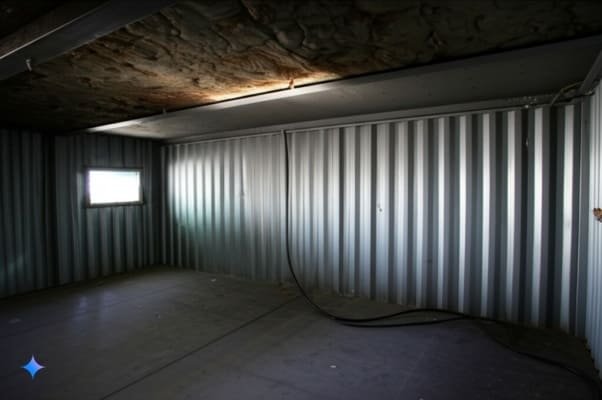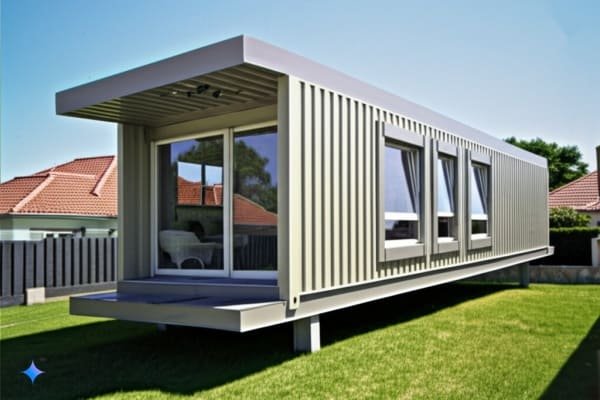Container homes1 have become a popular alternative to traditional housing2, offering unique advantages for homeowners. But are they worth the investment3? Let’s explore the benefits to help you decide.
Container homes are cost-effective, eco-friendly, and highly customizable. Made from repurposed shipping containers, they reduce construction costs and environmental impact. Their modular design allows for easy expansion, and they’re durable enough to withstand harsh conditions.

If you’re considering a container home4, understanding its benefits and potential downsides5 is crucial. Below, we’ll answer common questions6 to help you make an informed decision.
What is the downside of container homes?
While container homes offer many advantages, they also come with some challenges.
The downsides of container homes include limited space7, potential insulation issues8, and zoning restrictions9. Additionally, modifications like cutting windows or doors can weaken the structure, and rust may develop over time without proper maintenance.

Common Challenges of Container Homes
| Challenge | Impact |
|---|---|
| Space Constraints | Limited by container size |
| Insulation | Requires extra work for comfort |
| Zoning Laws | May restrict placement |
| Structural Integrity | Modifications can weaken the box |
Being aware of these challenges can help you plan and address them effectively.
What is the lifespan of a container home?
The lifespan of a container home depends on its construction and maintenance.
With proper upkeep, a container home can last 25–30 years or more. Regular maintenance, such as rust prevention10 and insulation checks, is essential to ensure longevity.

Factors Affecting Lifespan
Here are the key factors that influence how long a container home will last:
| Factor | Impact on Lifespan |
|---|---|
| Material Quality | High-grade steel lasts longer |
| Maintenance | Regular upkeep prevents rust |
| Climate | Harsh weather can reduce lifespan |
| Insulation | Proper insulation protects the structure |
By addressing these factors, you can extend the life of your container home.
Do you pay taxes on a container home?
Taxes on container homes vary depending on local regulations.
In most cases, container homes are subject to property taxes11 if they are permanently affixed to land. However, portable or temporary container structures may be exempt from taxes in some areas.

Tax Considerations for Container Homes
| Situation | Tax Implications |
|---|---|
| Permanent Home | Subject to property taxes |
| Portable Structure | May be tax-exempt12 |
| Location | Local laws dictate tax rules |
Understanding your local tax laws can help you plan your budget accordingly.
Is it hard to insure a shipping container home?
Insuring a shipping container home can be more challenging than insuring a traditional home.
Insuring a container home may require specialized policies13. Insurers often assess factors like construction quality, location, and safety features. Some companies offer tailored coverage for non-traditional homes14.

Tips for Insuring a Container Home
Here are some steps to make the insurance process easier:
- Choose a Reputable Builder: High-quality construction increases insurability.
- Add Safety Features: Install smoke detectors, fire extinguishers, and secure locks.
- Document Everything: Keep records of construction and modifications.
- Shop Around: Compare quotes from insurers familiar with container homes.
By following these tips, you can improve your chances of securing insurance.
Conclusion
Container homes offer a unique combination of affordability, sustainability, and flexibility. By weighing their benefits and challenges, you can determine if they’re the right choice for you.
-
Discover the unique advantages of container homes and see if they fit your housing needs. ↩
-
Learn how container homes stack up against traditional housing options in terms of cost and benefits. ↩
-
Explore whether investing in container homes is financially wise and what factors to consider. ↩
-
Explore the advantages of container homes, including cost-effectiveness and sustainability, to see if it’s the right choice for you. ↩
-
Understanding the drawbacks can help you weigh your options and make a more informed decision about container living. ↩
-
Find answers to frequently asked questions to clarify your doubts and enhance your knowledge about container homes. ↩
-
Understanding the challenges of limited space can help you design a more functional container home. ↩
-
Exploring insulation solutions can enhance comfort and energy efficiency in your container home. ↩
-
Learning about zoning restrictions is crucial for ensuring your container home complies with local laws. ↩
-
Learn about effective rust prevention methods that can significantly enhance the durability of your container home. ↩
-
Understanding property tax implications is crucial for budgeting and financial planning when investing in a container home. ↩
-
Exploring tax-exempt status can save you money and help you make informed decisions about your container home investment. ↩
-
Understanding specialized policies can help you find the right coverage for your unique container home. ↩
-
Exploring how insurers approach non-traditional homes can guide you in securing the best insurance options. ↩



